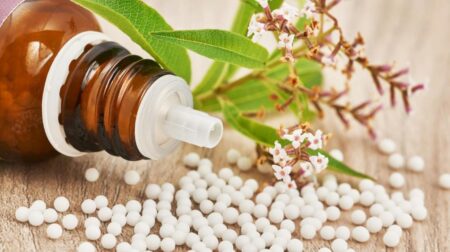Babies are adorable and cuddly, but they may also cause anxiety in their parents. Having a small kid presents a variety of obstacles, including getting them to sleep without screaming or fussing, remembering to feed them on time, and keeping them engaged. There’s also the subject of dental hygiene to consider.
We worry as parents about what will happen if our children never get the opportunity to grow strong teeth and healthy gums. Fortunately, you can do a few things to keep your nannusays grin in good shape. Here are some suggestions to assist you in giving the greatest care for your kid throughout his or her early years.
What does it mean to have “healthy teeth”?
When talking about healthy teeth, we’re talking about oral health and permanent tooth development.
Of course, the first is oral health. This is the status of your baby’s teeth and gums at any one time. Generally, taking your infant to the dentist or hygienist for frequent examinations and cleanings is an excellent idea. It’s also crucial to watch for symptoms your child may require dental assistance (such as a bad smell coming from their mouth).
If you see any irregularities, you should call a professional as soon as possible so that they may take whatever steps are necessary to ensure that your kid receives adequate care. Forming permanent teeth is another aspect of good dental health (including both top and bottom teeth).
This process is influenced by various variables, including diet and behaviors such as sucking on pacifiers or drinking from bottles rather than consuming solid meals. The greatest method to guarantee that your child develops healthy permanent teeth is to ensure they are exposed to enough natural sunshine.
Why is it so vital for newborns to have good oral health?
Various variables influence the health of a baby’s teeth and gums. Their oral hygiene practices, nutrition, and how often they wash their teeth, for example, may all influence how healthy their mouth is. Cavities can develop in babies with poor hygiene or eating too much sweet food.
In addition to preventing cavities, effective dental hygiene aids your nannu says in developing healthy habits. It also aids in developing a greater taste for foods that are good for them. Furthermore, if your child has a healthy mouth as they age, they will be less likely to encounter discomfort.
If kids have healthier teeth and gums from a young age, they are less likely to require substantial dental treatment in the future since their healthy teeth will take care of most concerns on their own.
How to Care for Your Child’s Teeth
The first step should be to begin at a young age. From a young age, babies must be taught good brushing
and eating habits, so ensure they are always monitored in the restroom.
-Baby teeth should be brushed twice a day for 30 seconds
-You should only use small, soft bristles
-Babies should drink diluted apple juice or water to rinse their mouth after brushing
-Mix toothpaste with just water; avoid using too much toothpaste when brushing your baby’s teeth
-Don’t let them eat anything sticky
Tips for creating a healthy environment for your baby at home
Creating a safe and clean environment for your kid is one approach to keeping his or her smile healthy. It’s critical to maintain your baby’s environment as clean as possible if you want to give the finest care possible.
One simple approach to accomplish this is to ensure that all windows are closed while not in use. When it’s time for a change of air, keep your home well-ventilated by opening the windows. This will assist in keeping the space free of germs and allergies.
Another approach to keep your baby’s environment healthier is to wash your hands before touching him and after cleaning up any messes he makes. You don’t have to wash every surface every time; use soap and water to clean any places touched by unclean hands or spilled food frequently.
Also, ensure your youngster isn’t exposed to any dangerous compounds in the house, such as cleaning products or pesticides.
How to maintain your baby’s smile healthy with dental care.
A baby’s first tooth usually appears around the age of six months. It’s time to start cleaning your child’s teeth with a toothbrush and water and teaching them to spit out the toothpaste once they have teeth. Keeping an oral hygiene routine as possible is one of the most critical things you can do for your infant. Consistency is key. Make sure your youngster understands when and how often they should brush.
Another thing to keep in mind is that children are more prone to cavities than adults, so start teaching them good brushing techniques right away. They must be taught how to clean their teeth for two minutes on each side, in circular motions from front to back and top to bottom.
If you want your child to prevent getting dental problems later in life, you should be cautious about the toothpaste they use. Many common brand components contain fluoride, which can cause various health concerns later in life, including bone demineralization and nerve damage.




